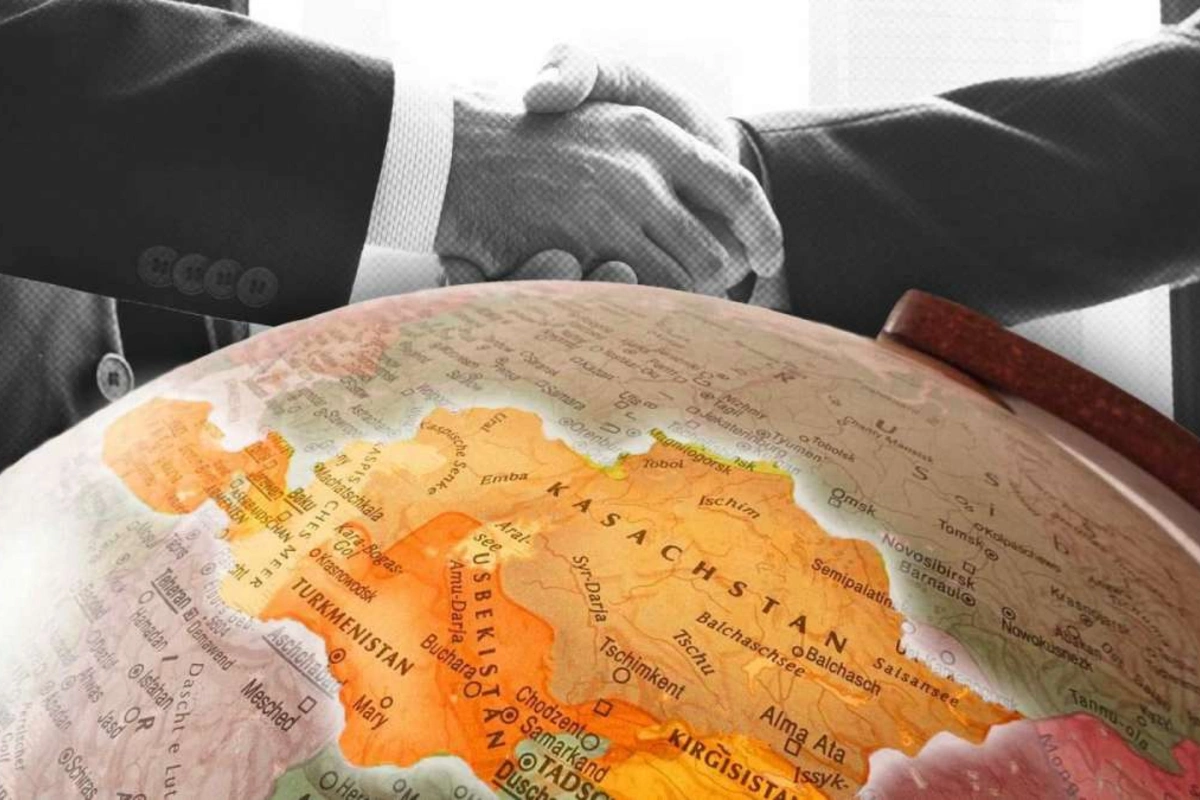
The growing partnership between Kazakhstan and Türkiye is another critical area of focus. Rooted in shared Turkic heritage, this relationship has seen renewed momentum in recent years. T
Google images
Kazakhstan stands at a pivotal moment in its history, navigating a complex web of geopolitical shifts while positioning itself as a key player in Central Asia. From participating in ambitious energy projects to fostering deeper cultural and economic ties with Türkiye, the choices made today will have lasting implications for the country's future, The Caspian Post reports.
One of the most significant opportunities for Kazakhstan lies in its potential role as a transit hub for Russian gas destined for China. This project offers dual advantages. On the one hand, it promises substantial economic benefits, including transit fees, investments in infrastructure, and enhanced connectivity between major regional players. On the other hand, it reinforces Kazakhstan’s strategic importance in the global energy landscape. However, Kazakhstan must approach this partnership with caution. While the economic incentives are clear, the country must ensure that the terms of its participation align with its long-term national interests, safeguarding against overreliance on any single partner. Transparency and equitable benefits must underpin any agreement to ensure mutual gain and avoid vulnerabilities.
The growing partnership between Kazakhstan and Türkiye is another critical area of focus. Rooted in shared Turkic heritage, this relationship has seen renewed momentum in recent years. Türkiye's efforts to revive the historical concept of "Turkistan," replacing the term "Central Asia" in its historical narrative, signal a broader cultural and political vision. This initiative not only underscores the deep historical ties between the two nations but also aims to foster a sense of unity among Turkic peoples.
For Kazakhstan, embracing this Turkic identity offers several benefits. It provides a framework for cultural renaissance, strengthens national identity, and positions the country as a central figure in a potential Turkic bloc. Such unity is especially relevant in a world increasingly shaped by regional integration and shared cultural identities. However, Kazakhstan must balance these aspirations with its existing commitments to other regional alliances and partnerships, such as the Collective Security Treaty Organization (CSTO), where Russia plays a dominant role.
Transport and trade initiatives also play a pivotal role in shaping Kazakhstan's strategic future. The Middle Corridor, a key component of the Belt and Road Initiative, has emerged as a critical route for diversifying Kazakhstan's trade partnerships. By reducing its reliance on traditional routes dominated by Russia, Kazakhstan can enhance its economic resilience and deepen ties with both China and European markets.
Türkiye's active support for the Middle Corridor reflects a shared vision for greater economic connectivity across the Turkic world. Initiatives like the Simplified Customs Corridor, established under the Organization of Turkic States (OTS), aim to streamline trade, reduce transit times, and foster collaboration between member states. These developments present Kazakhstan with a unique opportunity to position itself as a central player in regional trade and logistics. However, realizing this potential will require significant investment in infrastructure, effective policy coordination, and the ability to navigate complex geopolitical dynamics.
Security is another area where Kazakhstan and Türkiye are deepening their collaboration. Amid growing external threats, such as transnational terrorism and instability in neighboring regions like Afghanistan, the two nations are working to enhance regional stability. A key aspect of this partnership involves leveraging their shared Turkic identity as a unifying force to counter external pressures and foster a sustainable framework for regional security.
The potential creation of a military bloc under the auspices of the OTS is a particularly intriguing development. For Kazakhstan, joining such a bloc would provide access to advanced military technologies, opportunities for joint training exercises, and a platform for addressing shared security challenges. However, this move comes with risks. As a member of the CSTO, Kazakhstan must carefully navigate its relationship with Russia, which might view a parallel Turkic military alliance as a threat to its influence in the region. Balancing these competing priorities will require nuanced diplomacy and a clear understanding of Kazakhstan’s long-term strategic interests.
On the economic front, Türkiye's growing investments in Kazakhstan underscore the potential for deeper collaboration. Sectors such as energy, agriculture, and digital transformation offer particularly promising opportunities for mutual growth. Kazakhstan's abundant natural resources and strategic position as a logistics hub make it an attractive destination for Turkish investors. At the same time, Türkiye’s active foreign economic policy, aimed at expanding its influence in the Turkic world, aligns with Kazakhstan’s goals of diversifying its economic partnerships and reducing dependence on traditional trade routes.
The success of these initiatives will depend on Kazakhstan's ability to create an investment-friendly environment, prioritize strategic sectors, and foster strong partnerships with Turkish businesses. By leveraging its unique strengths, Kazakhstan can attract significant foreign investment, drive economic growth, and enhance its role as a regional leader.
In this context, the revival of Turkic identity and cooperation offers both challenges and opportunities. While the idea of a united Turkic bloc is appealing, it requires careful balancing of cultural, economic, and political considerations. Kazakhstan must ensure that its pursuit of deeper Turkic integration does not come at the expense of its relationships with other key partners, such as Russia and China.
Kazakhstan’s participation in Turkic initiatives, from cultural exchanges to transport corridors and security alliances, reflects its broader vision for regional integration and global relevance. However, these efforts must be underpinned by a clear strategy that prioritizes national interests, fosters equitable partnerships, and navigates the complexities of a rapidly changing geopolitical landscape.
As Kazakhstan moves forward, it must embrace its role as a bridge between East and West, leveraging its strategic location, rich cultural heritage, and growing economic potential to shape its future. By making thoughtful, strategic choices, Kazakhstan can not only strengthen its position in Central Asia but also contribute to a more stable, integrated, and prosperous Turkic world.
Share on social media